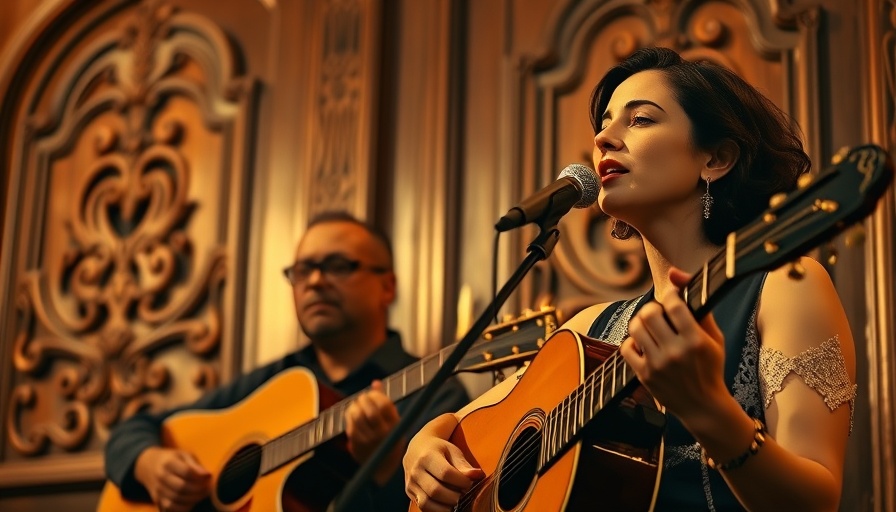
Fado: A Deep Dive into Lisbon's Heartbeat
In the narrow, winding streets of Alfama, as the moonlight casts a silvery gleam over the cobblestones, one can hear the soulful strains of fado music—a genre pulsating with the very essence of Lisbon. It is more than just music; it is a powerful expression of saudade, a Portuguese word that encapsulates a profound sense of longing, nostalgia, and even sorrow. This melancholic yearning, deeply woven throughout Lisbon’s rich tapestry of history, speaks to the heart of its people and their complex relationship with destiny.
The Role of Fado in Portuguese Culture
Fado, often performed in intimate tavernas, typically features a lone singer accompanied by acoustic guitar. This setting amplifies the emotion and vulnerability expressed in each note. During a recent state-of-the-art exhibition in Lisbon, dedicated to the legendary fado singer Amália Rodrigues, attendees explored how fado has evolved while maintaining its roots in the emotional landscapes of its predecessors. The exhibition not only highlights the music's rich history but also its relevance in modern Portugal, creating a bridge between the past and the present.
Capturing Lisbon's Soul Through Saudade
Saudade serves as a cultural cornerstone for Lisbon. This feeling is deeply reflected in fado and resonates with listeners not just in Portugal, but around the world. The music tells stories of love lost and dreams deferred, allowing individuals to connect through shared human experience. It evokes a spectrum of emotions, drawing the listener into a reflective state that feels both personal and universal. Audiences are frequently transported, feeling the weight of history and the passion of those who have come before them.
Anchored in Tradition Yet Evolving
While fado's roots are planted firmly in the past, contemporary interpretations are breathing new life into this traditional genre. Artists like Carminho and Ana Moura are merging fado with other musical genres, infusing jazz or pop elements, which broaden its appeal and introduce a new generation to its powerful narratives. This evolution fuels discussions about cultural preservation versus innovation, emphasizing how tradition can adapt while still honoring those who paved the way.
A Global Resonance: Fado’s Influence
Fado is not merely a local phenomenon; it has found audiences around the globe, fostering a communal identity among the Portuguese diaspora and international fans alike. The music’s universal themes of love, loss, and longing resonate across borders, illustrating the strength of emotional expression in connecting diverse cultures. Festivals celebrating fado have sprung up in cities like New York and Paris, evidencing its ability to traverse cultural barriers.
The Experience of a Live Fado Performance
For those fortunate enough to witness a live performance, the energy is palpable. The ambiance of a small taverna, dimly lit with flickering candles and the air thick with anticipation, sets the stage for an intimate journey. The singer, often draped in black to symbolize the drama and gravity of the stories being shared, engages with the crowd, creating an emotional dialogue that resonates deeply. It’s a participatory experience where the audience is not just a passive listener but a vital thread in the fabric of the performance.
Conclusion: Fado as a Living Heritage
Fado encapsulates an enduring part of Lisbon's identity—its soul. By bridging generations and countries, fado does more than evoke sorrow; it is a celebration of life’s complexities. Through these heartfelt melodies, one gains insight into Lisbon’s character, which is forever marked by the interactions of its inhabitants with their shared stories of yearning and love.
For those eager to experience this unique aspect of Portuguese culture, a visit to Lisbon's vibrant neighborhoods during an evening of fado promises an unforgettable journey through sound and soul.
 Add Row
Add Row  Add
Add 



 Add Row
Add Row  Add
Add 
Write A Comment